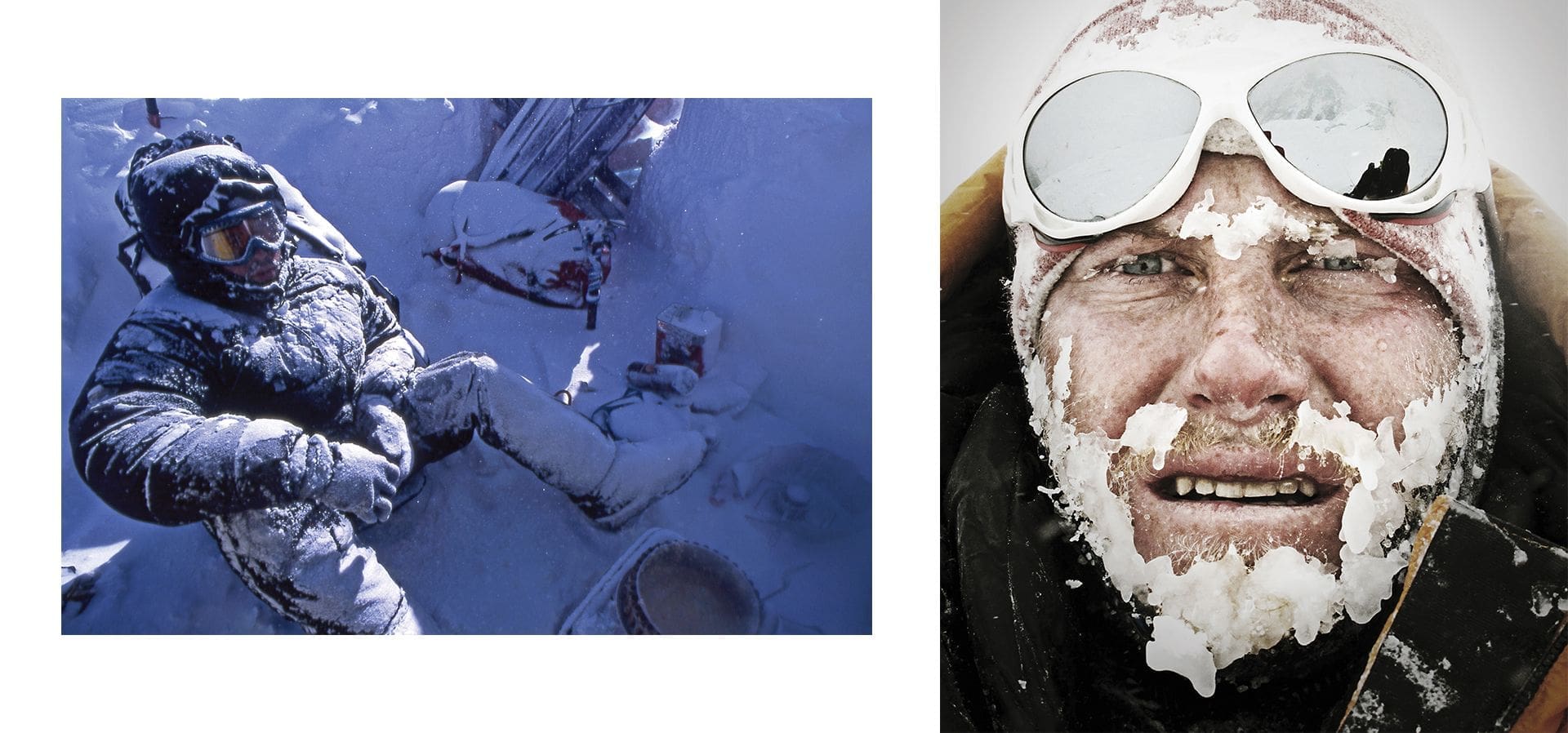This Photographer Puts His Life On the Line for the Perfect Shoot
Cory Richards is one of the world’s most recognised adventure and mountaineering photographers, and the National Geographic Adventurer of the Year in 2012. His mission: to capture not only the soul of adventure and exploration, but also the beauty inherent in our modern society. His photography has taken him across the world – from the unclimbed peaks of Antarctica and the Himalayas of Nepal, to the forgotten war zones of Angola, Uganda, and Pakistan.
He has deep insight on risk-taking and striving for perfection, an affinity he feels he shares with Rolls-Royce. Richards has partnered with Rolls-Royce in the latest in a series of ‘Inspiring Greatness’ films created by the marque. In 2018, Richards has also taken part in ‘The Final Challenge’, documenting his journey in a camouflaged Rolls-Royce Cullinan, an undertaking to test the world’s pinnacle SUV to destruction.
Richards is a passionate mountain climber on the North Face athletic team and his photography has appeared in the National Geographic magazine, Outside, and the New York Times. His film work has won awards at major adventure film festivals, including the grand prize at the Banff Mountain Film Festival. Richards has also been top billing at The World Economic Forum and South by Southwest, sharing his unique insights built upon his experiences. His TV appearances include The Charlie Rose Show, CBS This Morning and The Weather Channel.
We talk to Cory about the change the world is going through and his place in reflecting that as well as his next adventure.
When you’re training, does it require that you have to block certain things out and then focus on what you’re doing?
There are a few things happening in the world that give it a sense of urgency, a feeling of uncertainty. For me, it’s an emotional time to be alive, but it’s also an optimistic time.
I think some of the problems that we’re facing demand a certain level of attention that we have not given ourselves and the world around us in recent decades.
I’m actually quite excited to see how we evolve out of the pandemic, how we evolve out of this strong movement towards equity. It’s not just an American struggle, obviously.
To answer your question, this has been a unique time because in general, I do have to try to walk a delicate balance between a training schedule and a work schedule. Because, in order to stay relevant, I still have to go out and photograph, I still have to be present in social media. In order to feed those things, there’s a certain amount of work that is necessary.
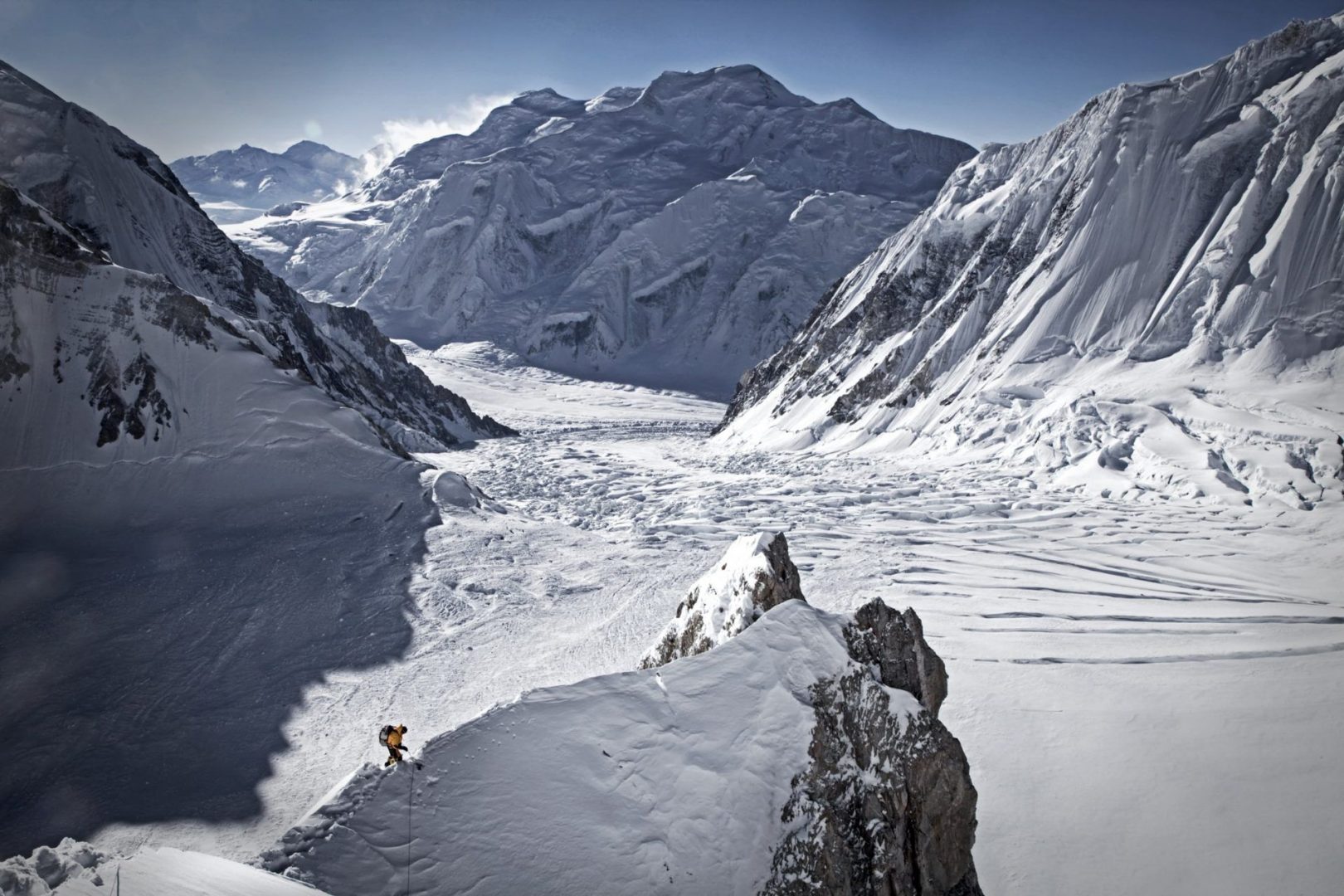
Part of it, on the other hand with this, the last three months especially with everything getting put on hold, it’s given me a really, I think, beautiful opportunity to immerse myself more in a regimented schedule that I haven’t been able to indulge in in the past.
What that’s shown me actually is that, for the foreseeable future, I want to try to find a more slanted balance towards training and actually blocking off more time because I’ve seen how drastic the results can be if I just do this. In order to accomplish what we’re trying to accomplish next year on Everest, that’s what’s demanded of me. Finding a way to do that more effectively is really important right now. I don’t know what it’s going to look like.
Have you found it difficult to try and get that balance between living on the edge and then having some structure as well?
It’s absolutely been part of the journey. I’m almost 40 now and I feel as though when I was younger, I could jump from one thing to the next pretty seamlessly. What that created was a lifestyle of constant stimulus that then, when I would have larger gaps in between projects, I would find myself impacted emotionally, primarily going through downswings.
I’ve always suffered with depression and anxiety from a very young age, so in those moments when I didn’t have something to fill that space, I would dive into pretty significant depressions which would feed anxiety. That anxiety would feed an insular sense of needing to be closed off, which in turn feeds the depression.
I have found that as I get older, if I can have structure, regardless of where I’m at, I’ve had to reimagine what structure looks like. I’m not going to have a structured life in the sense of going to a nine to five job.
That’s just not the life that I’m going to lead, I’ve never led it. But what I can do is say every day, there’s still 24 hours and in those 24 hours, no matter where I am, there can be some level of structure and routine that I can build into it.
The only days where that might not work is a day where I’m actually on an airplane for 36 hours. Otherwise if I’m at a hotel, I can go to the gym there, I can answer emails for an hour. It just depends when I want to get up and how motivated I am to stick to that routine.
The way I found balance is not through trying to restructure my whole existence, but rather in a day to day context. How can I structure it to give myself that routine that allows me to feel grounded and less uncertain in a life that is really defined by uncertainty, in some ways.
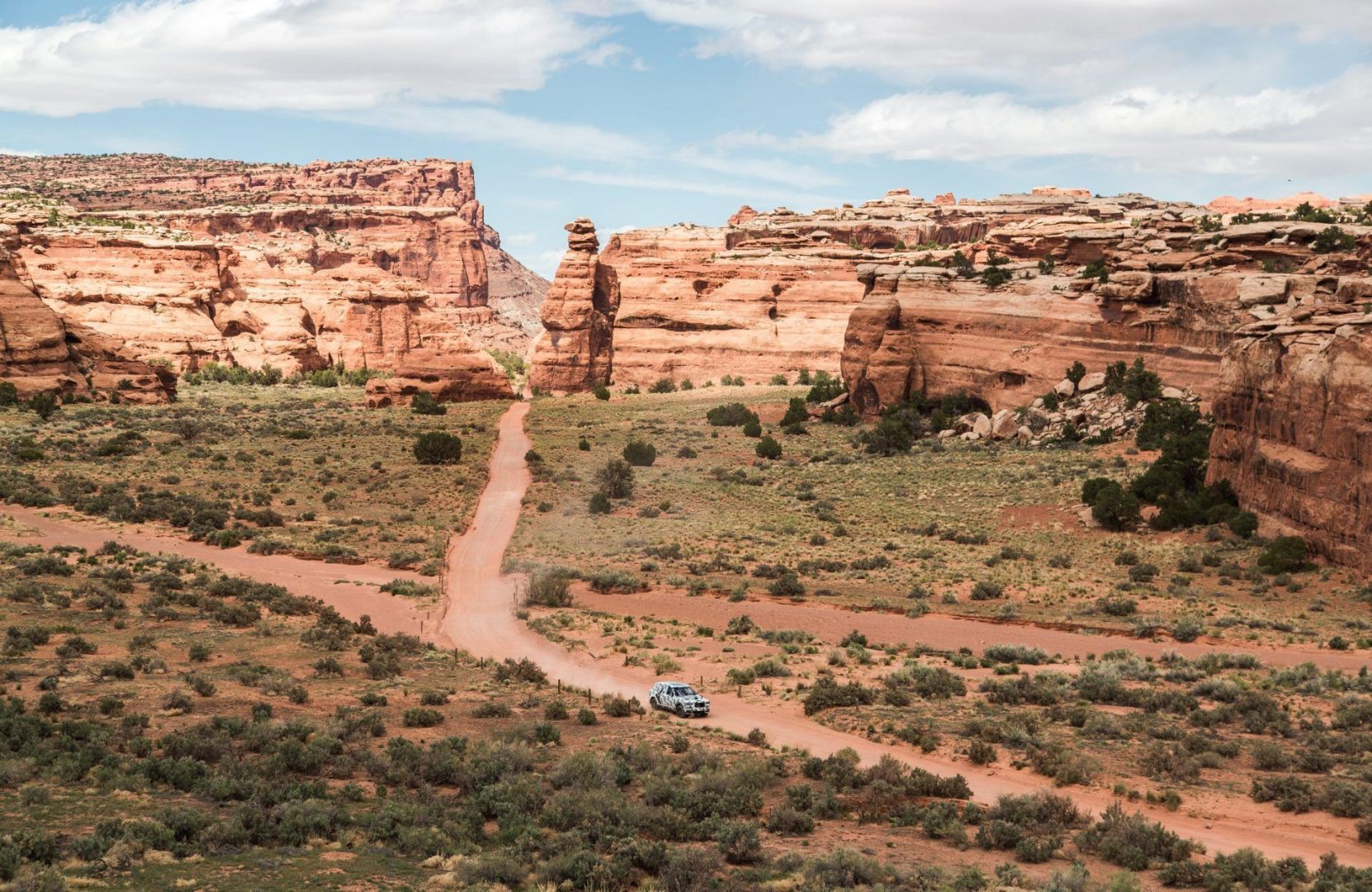
In New Zealand, we’ve got such a huge issue with depression and suicide. Would you have any advice to even things out and bring in some of that structure that you talk about that helped you?
First of all, the thing that I think anybody that’s going through mental health issues, or is observing somebody who’s going through that, the first thing that we need to know is that this is okay, this is normal and it’s not hopeless, first and foremost.
Secondly, if you’re in that, it’s okay to talk about. Because the reality is that, at least my experience with this, has been that when I am most vulnerable to these bouts of depression, yes, it can be a predicated or catalyzed by a massive high and then a dip into a more sedentary moment in life. But truly what pushes that emotionally deeper is a sense of isolation.
After you come back from a big trip, that stimulus goes away and you feel emotionally isolated. Nobody’s around you that can understand what you’ve just been through, where you’ve been, how this whole thing impacted you and unfolded.
It creates a sense of isolation and that is consistent. You don’t need the big high to feed that. Isolation is what’s going to create a sense of aloneness and drive people deeper into a sense of feeling unseen, feeling unheard. In that, we start to build a sense of shame around our own isolation.
Again, it’s a negative feedback loop. So what I could offer is that first and foremost, talk. It doesn’t have to be to everybody, it can be one person. Don’t be afraid to talk about how you’re feeling.
And immediately, we think, ‘Well, should I call my mom? Should I call my brother?’ If somebody that you immediately think you should call isn’t going to respond well, or doesn’t know how to talk about this, think of the person that you should call that can talk about it.
A lot of times, our brothers, our sisters, our family members, they want to give us good feedback, but there’s a lot of that, ‘Well, just suck it up and soldier forward.’ That’s not helpful. Don’t call that person that’s going to tell you to soldier on.
Call the person that’s going to sit there with you and listen and really take in what you’re saying. The person that’s not going to “at least” you. ‘At least you have a home to go to’, ‘at least you still have money in the bank account.’ That’s not the person you want to talk to.
You want to talk to the person that’s going to say, ‘tell me more about it.’ ‘Oh yeah, I can really relate to that. I’ve had this struggle myself.’ That’s your first thing, find somebody to talk to.
The second thing, and this is very practical advice, build out some level of routine. It doesn’t have to be deep. It doesn’t have to be, ‘I’m going to go climb Everest next year.’ It’s, ‘I’m going to get up and I’m going to sit quietly for five minutes.’ I find it incredibly helpful to make a list.
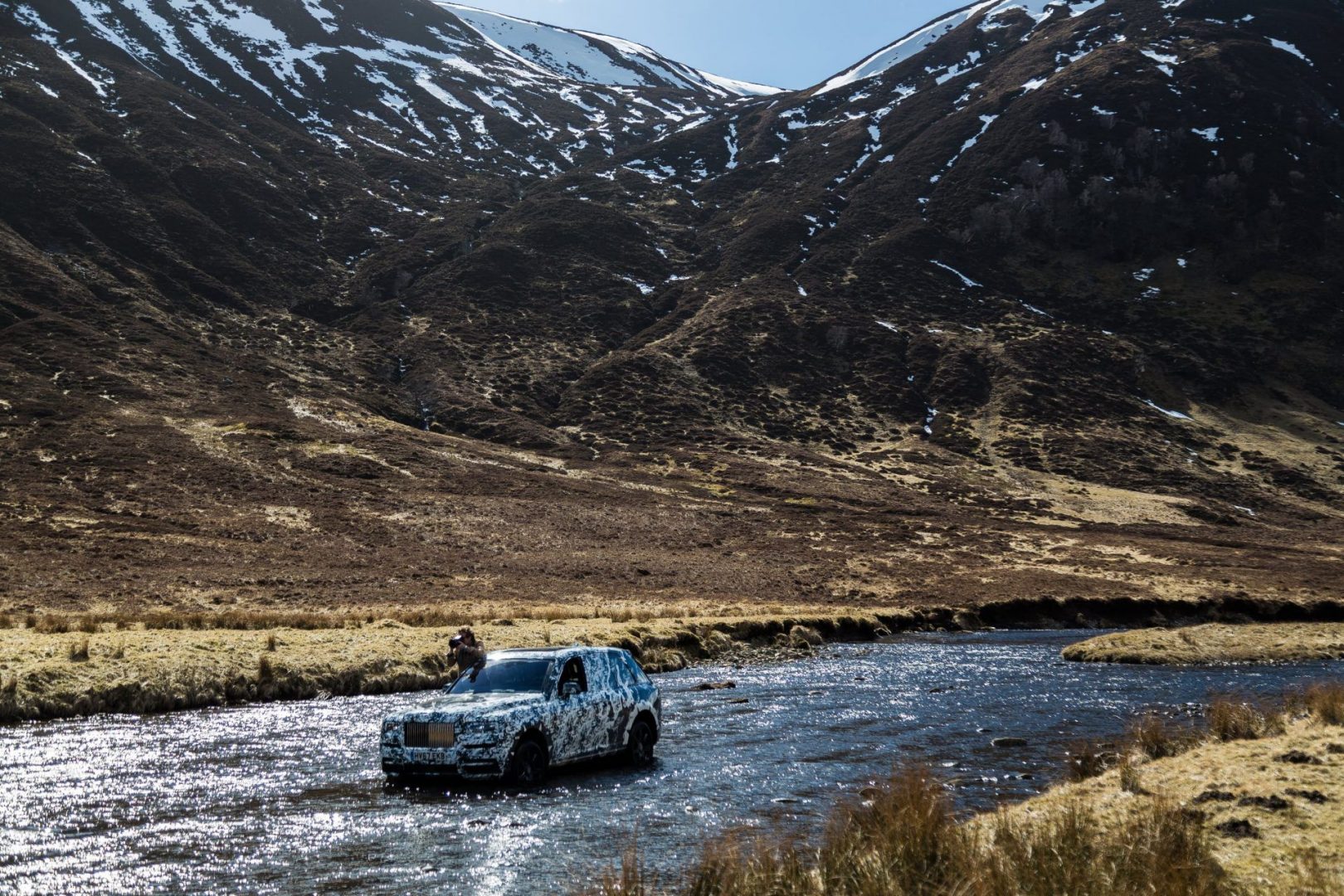
What happens is if you make a list, simple action items, and you go down that list right throughout your day, and you actually tick them off, every time you tick off one of those things on your list, your brain has a dopamine response and you’re building a positive experience.
If you can do that throughout your day, you’re actually giving yourself a healthy dopamine reaction that builds a positive feedback loop and gets you out of some level of depression.
Again, chemical depression is very, very serious and sometimes it needs to be dealt with on a medical level. But if you can do those little things, what that’ll do is help lift you far enough out that you can start to reach out to the people that you need to talk to.
You can reach out to a doctor and you can start to get yourself back on that path. I know those seem simple, but it’s so funny that oftentimes we’re looking for these big solutions to problems in our lives. But so often solutions are really, really simple, tiny things that are repeatable. The more we can repeat them, the better off we become, because it builds that response in our brains that we’re accomplishing something. We’re accomplishing goals, no matter how small they are. Ultimately, that lifts us out incrementally.
Do you feel that your work has opened this world, this connection to the very edges of those experiences that you talk about?
I would hope so. My driving force with photography and storytelling in general, my driving force with any relationship that I have, like with Rolls-Royce, is to create an emotional connection between the experience and the people that we’re trying to bring on that experience, the viewership.
Whether that’s through hardcore photo journalism that’s documenting climate change, or whether it’s actually doing something like taking the Cullinane all over the world.
What we’re trying to do, what I am always trying to do is go further than saying, ‘Hey, this is a really cool place and a really cool experience’, or ‘this is a really cool car.’ But ‘look where we are.’ This world is incredibly gripping and beautiful and meaningful and there’s so much beauty in it.
So I would hope that my photography and my storytelling, can be a conduit between that sense of awe and wonder and the audience. To bring the audience into that emotional experience of what it feels like to stand and watch a polar bear search for food, standing on that last piece of ice. To drive across the empty quarter and see that expanse of nature that is so haunting and vast and big and feels like it could swallow you and give you that sense of, ‘what does it actually mean to be human on this planet and how finite am I?’
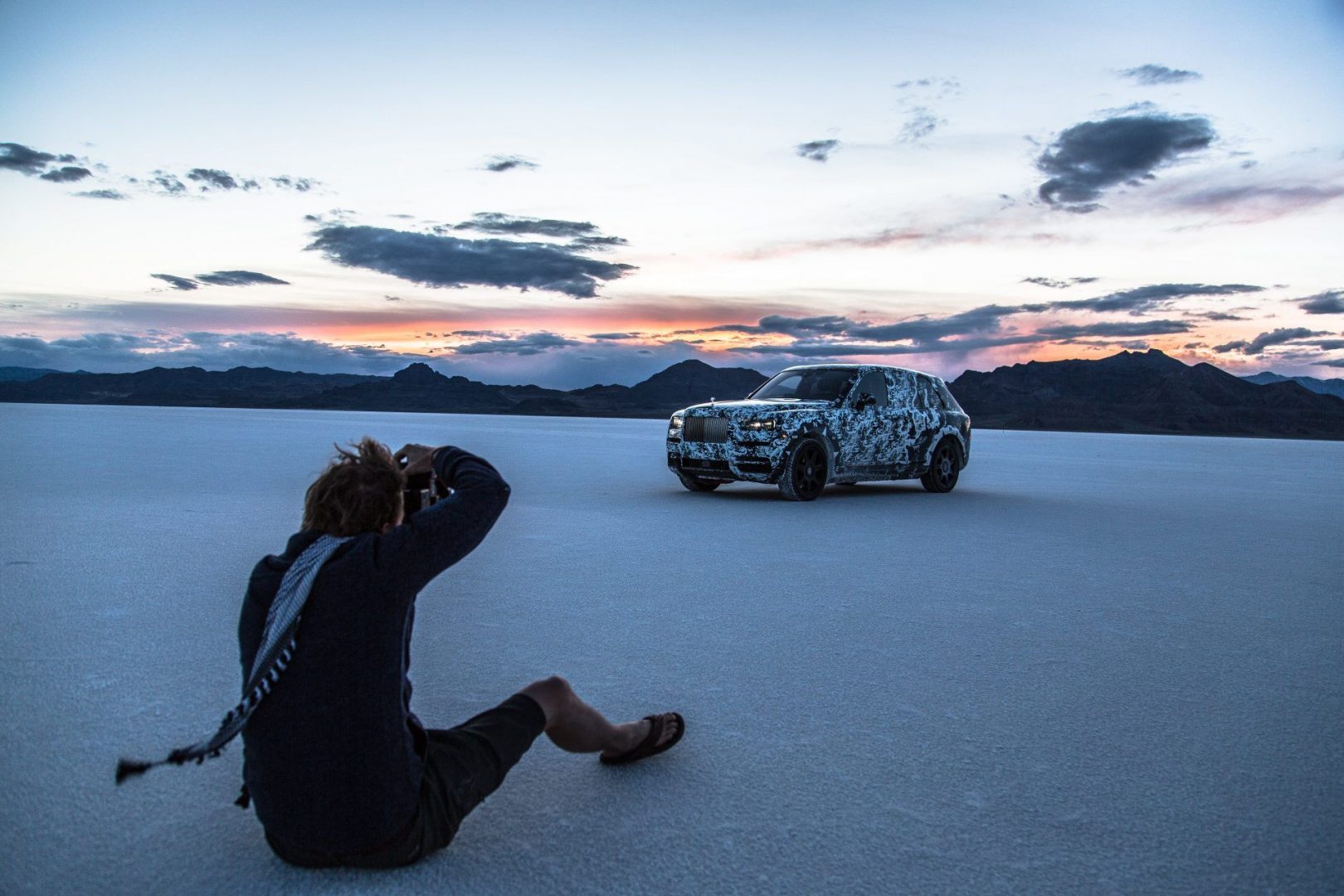
I would hope that’s what I’m doing. I know sometimes I fall terribly short of it, but that is the process of creation. Sometimes we knock it out of the park and sometimes we completely blow it.
I think actually, when you blow it, that’s probably where the most information lies. Why didn’t it work? Why didn’t I connect with my audience? Why did people feel what I was trying to offer them? What in my art form was blocked? And if you can figure those things out, then every time you go out, you’re a little bit more effective.
What is your definition of blowing it?
I think my metric varies, it’s a sliding scale. How I define failure will be determined by the story I’m trying to tell an audience I’m trying to reach. For example, last year on Everest, when we’re trying to climb an unclimbed route, if we don’t get to the top, that is a clear failure. But then again, it’s arguable that we didn’t die, so we didn’t fail completely, because that would be total failure.
Oftentimes it’s not that clear. Did we bring a good story to an audience talking about what it takes to train for something like that? Did we bring a good story to an audience talking about what it looks like to turn around and that decision making and risk assessment? Was that a failure? Maybe not. Was the actual climate itself a failure? Depends on how you define it.
I, myself tend to look at it more objectively and holistically and say, even if it is a massive success, where could I have done better?
There’s a beautiful story of that happening with one of our professional sports teams, when they picked up their star athlete and they won the Super Bowl. Then after the Super Bowl, rather than patting themselves on the back, they go, ‘why was he the sixth round draft pick, why didn’t we see that earlier?’
That to me is a beautiful question. That is a beautiful introspection into, if I did this thing really well, why didn’t I do it well sooner? Even when you reach it, it’s looking for the failures in getting there.
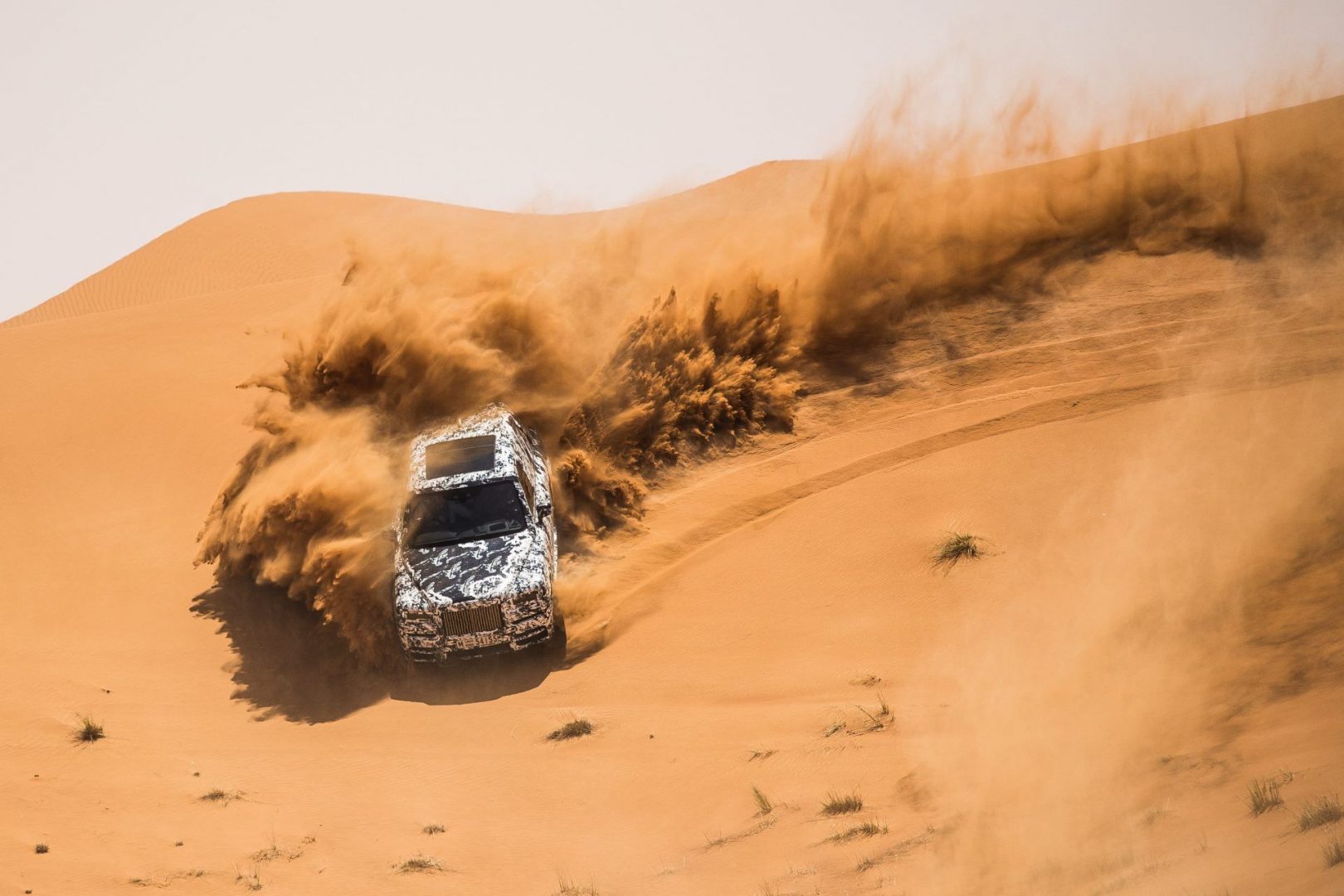
Do you feel this wider pressure of getting the message out there and influencing change, whether it’s social injustice or climate change? because there’s so much undeniable universal truth in what you do?
It’s unbelievable. When you have an audience, to be silent in a moment where you have emotion around something, to be silent around a topic that you feel something about, is a betrayal of yourself.
As the world speeds headlong into all sorts of what could be cataclysmic disasters, I would be remiss if I didn’t speak up. It would be wrong of me, it would undermine my integrity and my virtues.
At the same time, I know it’s not my place to be on a soap box and I don’t want to tell people how, or what to do. I want to offer solutions, I don’t just want to scream into the void.
One thing that bothers me is when people feel a social responsibility, but they don’t have any tangible offering to the conversation. They’re just pissed off. That to me feels unhelpful.
When I speak up, which I do feel a responsibility to, specifically around climate change and social injustice – and those two are oftentimes very, very linked and we’re seeing how intrinsically tied they are every day, more and more – I try to come at it with either an anecdotal experience that can offer some perspective or some level of solution that can help people navigate their own path forward with it.
If I’m not doing that, then I’m just talking. Then I think it is virtue signalling, then it is platitudes and just trying to be part of the conversation because you think it’s the right thing to do. I don’t really have any interest in. I’d rather say something wrong, than saying nothing at all, but ultimately, I want to try to be additive to the conversation, versus just part of it to be part of it.
When you’re showing this incredible world out there, there is the sense of optimism to that. Is that something that we need to do more of, rather than getting into ideological debates?
I think it’s absolutely essential that we have a balance between ideological debate and conversation that drives policy and inspiration that drives action. We need to mix those two more effectively.
But I do believe that there is a huge benefit for people being inspired and ultimately getting up and going out and acting in the act of creation, be it in their own adventure or telling that story.
In that, we create a connection to the world around us and people, through that, care more about everything they’re doing, they care more about the land around them, they care more about the environment they’re impacting. They care more about their family and friends, because we see that we are not apart from nature, but a part of nature.
As a part of nature, we rely on the global ecosystem. The more we damage that, and the more we damage each other, the more we fall apart at the scenes.
The more we are cohesive, the more we are grounded in our part in this global ecosystem; the kinder we are to it and the kinder we are to each other, because we see how we’re relying on one another.
Creating those stories is incredibly important. I do believe that it is imperative that all of us just get out as much as we can. It doesn’t have to mean that you go and climb Mount Cook, or go down to the Southern Alps.
New Zealand is an incredible place to experience some raw nature, but you don’t have to go to the edges of the earth to do it. You just need to go outside and simply stop and listen.
And you will be in that moment, connected to the world around you. You can hear the birds, you can hear the wind, you can hear the leaves.
There is a documented psychological response that happens in our brains when we just give ourselves an opportunity for a single moment to be connected to the natural world around us. The more we can inspire people to do that, the better it is.
Again, I think that’s where things like, whether you’re creating art or you’re creating automobiles, you have to go to that upper end. If I’m not going to strive for absolute perfection in my work, then I don’t want to do it.
I believe that’s true in companies as well. That’s what pulls everybody else along. When one person stands at the pinnacle and literally focuses all their attention into creating something absolutely perfect, and in doing so, everybody else holds them in a regard and they look up to them, that pulls them forward.
That becomes Kandinsky’s triangle, where we are all getting pulled forward by the person standing at the top. That upper echelon of creation, of creators, of engineers, of manufacturers, of thinkers; we need all of that to move the entire triangle or pyramid of society forward.
You’ve spoken about being a 13 year old living on the streets, having a rough time. Has it given you a base of empathy that has really helped shape your work afterwards?
We all have a creation story. Especially as we get older, we look back on our lives and we have, in some ways, a myth about ourselves, of how we arrived at the place we’re at. When I speak about these things, I try to be clear minded and concise with how I describe what happened.
But to answer your question directly, absolutely yes. The time that I spent on the streets or on the fray of society during my adolescent years, had a profound impact on how I came to see it ultimately later on.
I could not have said honestly that at the time I understood that. It was just a shaping, a crafting of my outlook on the world around me, that did give me a deeper sense of empathy.
When you experience that level of struggle, you are also shaping how you will interact with people in the future who are going through the same thing. You’re giving yourself a new language to speak.
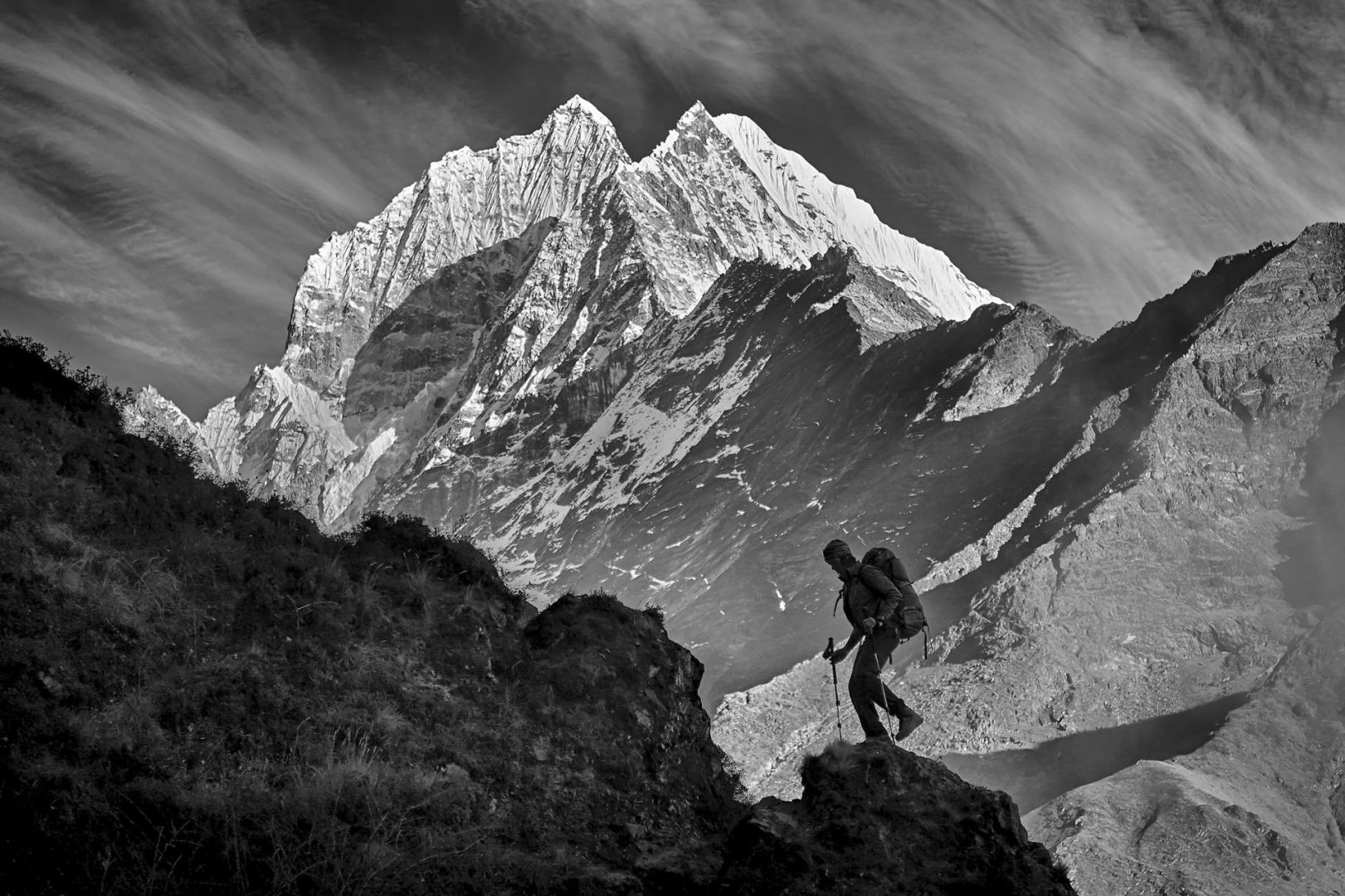
That ultimately I think has helped me create a sense of empathy that I hope carries through my work and I hope invites people into the global experience of what it means to be human.
When you see people out on the street and you see people picking through garbage cans and you see people sleeping on corners, or you yourself are sleeping on a corner, looking for a place to sleep, passed out behind the trash cans, whatever it is, it gives you a deep sense of vulnerability and that vulnerability connects or can act as a connective tissue to the rest of humankind.
We are all vulnerable, no matter how insulated we think we are. Ultimately, we’re all still the same thing.
We’re all still flesh and blood and we all still need the same things to survive. When those things are stripped away and reduced to a point of extreme discomfort, you start to view and understand the world around you in a different way.
I would say, absolutely, yes, that impacted me. I don’t want to go too deep into politics right now, but I also have to voice that I am one of the very, very lucky ones.
It does come from my upbringing as a white American man. There are very few people that could literally be so arrogant as to drop out of high school at a very young age, live on the street and still end up where I am. I have to voice this, it’s the right time to do it. That is an example of white privilege.
People of colour would have a much harder time accomplishing that pathway if they chose the same one, a much harder time.
I have to be very aware, especially in this moment, of how I’ve come to be where I am and not simply talk about how great it was.
Those uncomfortable periods in life gave me a certain sense of perspective. I was very lucky and I was given second and third and fourth chances, and that is an opportunity that many people do not have.
That’s what I think, at this moment, we’re all trying to fight for.
Are you optimistic about what we’re going through? Because we’ve had protests before, is there something different about now? Is it big enough that it will have a reset and we will rewrite the stories?
I’m optimistic that this is a tipping point. I really am. But one thing we have to remember is that every protest that has come before this and every protest that will come after this, is part of the same movement.
Too often, we get sucked into the idea of a moment and we only focus on that moment when the policy changes. But every person who’s marched in the street up to this point has been part of the moment that we may be approaching or where we see a real global shift in the racial conversation.
We cannot discount everything that’s come before this and we cannot stop now because we feel a sense of pride or that we went out and marched and we did our part. Now is the time to actually double down, to push harder on the gas. I am very optimistic that we are moving towards racial equity globally.
I’m very optimistic that we are actually moving towards a shift in the general psychology of the human family. Again, I have the great privilege of being able to think about those things. To even ponder them comes from a place of privilege. Many people are in a very different situation, in a very different struggle where it’s very real and very based on survival.
It is incumbent upon the people that are not fighting for their very survival to push this forward. We cannot place the onus and the burden of social betterment on the people that are under attack. It has to come from the people. It has to come from everybody, but it’s important that the people that are not under attack play an important tireless role in this moment. I’m very hopeful that we’re moving towards something better for all of us.
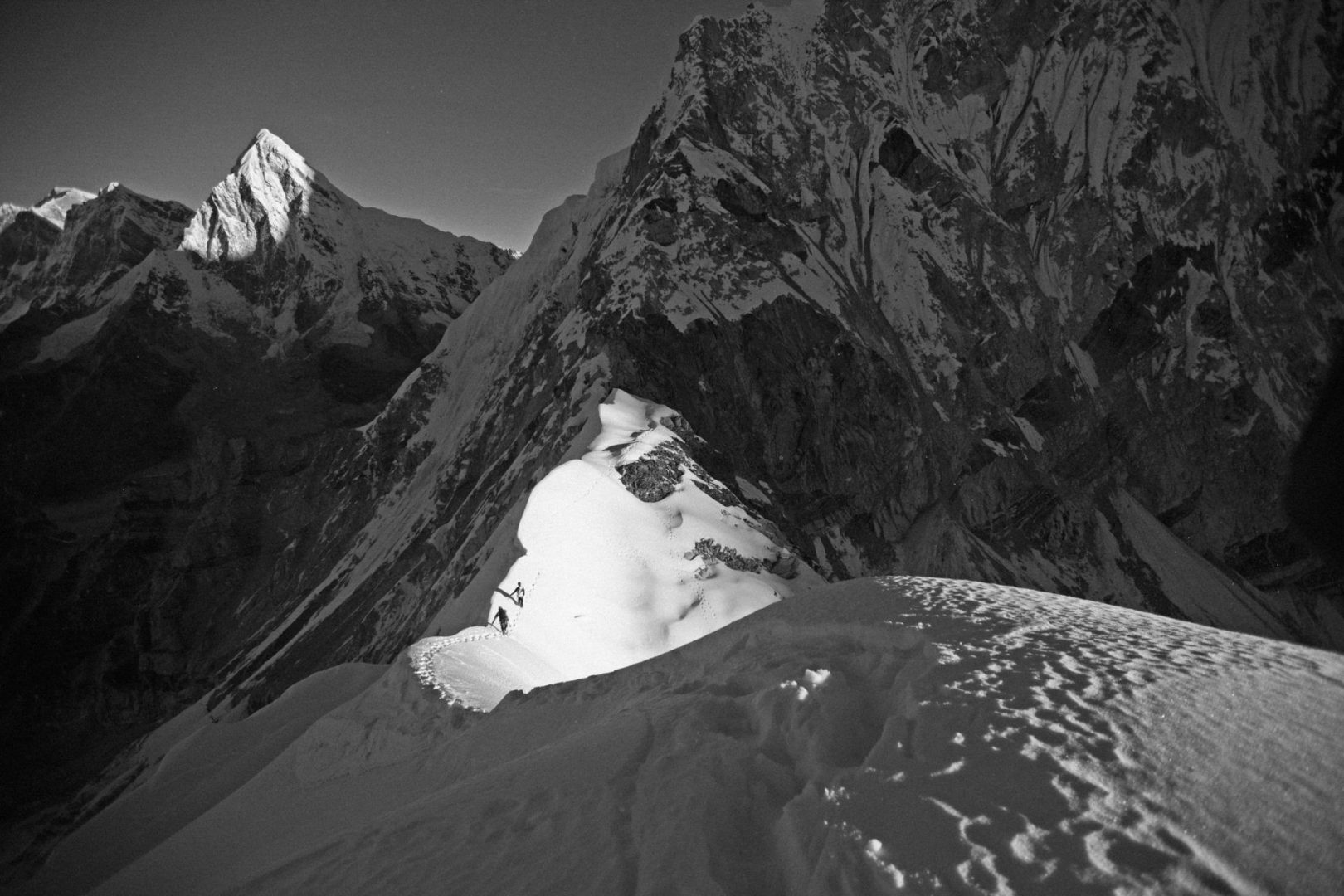
From an environmental and human perspective, we’re all connected. But we’ve been moving to a sense of siloed nationalism as well, which may have been exacerbated by COVID-19 where everyone’s looking inside at how we can be self sufficient. Are you worried that part of that global family starts to close off and become little units and we’d lose that connection?
I think we all need to be worried about that. I think we all need to be vigilant about the ideas of nationalism. All we need to do to understand where nationalism leads is look to our past. Every time we have an uptake in nationalism, it actually pulls us towards war and conflict. That’s just a truism, that’s not debatable, that’s just what happens when we become insular.
It’s not that we’re keeping ourselves safe, it’s that we’re closing ourselves off from everything else. Then, when we need something and we don’t have it, we’ve alienated ourselves so much that then it becomes important that we go out and get it. How do we do that if we’ve cut off all avenues of diplomacy, if we’ve completely isolated ourselves?
Moves towards nationalism are fuelled by an admirable sense of the passion, an admirable sense of identity, but they, I believe for me, are misguided.
I do worry about that, but I also think that this lean towards nationalism right now is a last dime grasp of that idea. It’s an old antiquated ideology that’s just reaching as it’s dying out. This moment, this tense feeling is right before that all breaks and falls away. I believe that wholeheartedly. I have to believe it.
I believe that we are moving towards something more unified, better and with a deeper, more empathic understanding of one another and what nations mean. That’s my hope. I do believe this is just that dying gasp. But it’s painful to watch and it’s painful to be a part of.
As soon as lockdown happened, it became really primal. We stripped away a lot of that buffer we thought we had. Do you think there was a humility that’s spread across and has opened us up for the discussion about basic human rights and equality?
Without question. What happens is if you look at the basic psychology of it, the immediate rush for survival items, that anxiety, that angst around it, comes from fear. If you trace that fear back, it’s tied to your vulnerability and we can all connect to that and go, ‘Whoa, we all felt very vulnerable for a second. Let’s look at what we all needed in that moment and understand how we can actually provide those things for one another moving forward.’
This is not going to be an isolated incident. This will happen again and again and again, so long as we keep up with the ecological dismantling and destruction. That’s how we come into contact with pathogens and illness like this.
There’s that component of it. I think that in our moment of vulnerability, which we are still very much in, there’s also a sense of being isolated, being unseen and unheard for a long time, in a way that we are not used to experiencing, when we can go out on the street and engage with society and community.
Whether or not we identify that as being seen and heard, it fulfills a certain psychological underpinning that we all have, which is to be part of something, to be part of the human family. When we become separated from that experience, there’s a sense of anxiety and a growing sense of needing to be seen and heard. It makes perfect sense to me that an incident like what we saw in Minneapolis would spark a global uprising of people.
If you think about it, there are so many more white faces in these crowds now, as there always should have been and always needed to be. But this is a moment where the human family is saying ‘we need to be seen and heard.’ Having the Black Lives Matter movement or the drive towards racial equity, be the flag that we are carrying forward in this moment, that is perfect.
If that’s how we become seen and heard as a human family, God bless it. That is the best thing that could have happened out of this. Absolutely, yes, I think our isolation through Covid has fuelled the moment we are in and has ignited something that is so, so, so overdue.
Given that things that seem to be moving so quickly and we have that growing empathy, does your work change in response to that?
Well, I would hope that it does, but I’ll be honest because I think it’simportant, even in this moment, I question, where is my place with storytelling? Where is my place with photography? How do I move forward with this? How do I move forward into this new world? Is that what I want to do in the world that we are waking up into? Or, do I need to shift and do something different?
Do I need to use other attributes of my life and my upbringing, my story to move the needle in another way? And truthfully, I don’t know the answer yet. What I do know is that this is a momentous moment in amidst a continuum, but this is an inflection point where many of us are going to be asked to step in a new direction.
That is that moment of uncertainty that I’ve talked a little bit about in the past that I actually think ties to what it means to be truly great and courageous. It doesn’t mean that you’re not scared. It doesn’t mean that you have all the answers. It means that you’re willing to say, I don’t have all the answers and I’m horrified, but I need to move forward on a different path, in a different way to have a greater impact.
I would hope that my work is informed by the moment we’re in, but by being informed, it could mean that my work changes completely. I don’t know yet, but I would like to think that over the span of my career, as a photographer, it has evolved from a place of selfish, going out and doing these cool adventures, which I still love doing, to trying to tell greater stories and bigger narratives around bigger and more impactful topics that have an impact on all of us.
Hypothetically speaking, do you have any ideas on what else you would do? Test driving for Rolls-Royce?
Sure, I’d love to take out some cars. No, I think storytelling will always be a part of it, but I think there are different avenues for storytelling. I think figuring out messaging is something that I’m deeply passionate about. I actually love the thought process behind, how do we tell an effective story?
At the same time, if you know politics well, it’s appropriate, that ultimately in my life, I would like to move more towards policy and move more towards public service and move into a realm where I’m actually picking up that flag and carrying it forward and advocating on a policy level for the things that I genuinely believe in. Those primarily being equity writ large and an environmental future that we can all live in and be proud of.
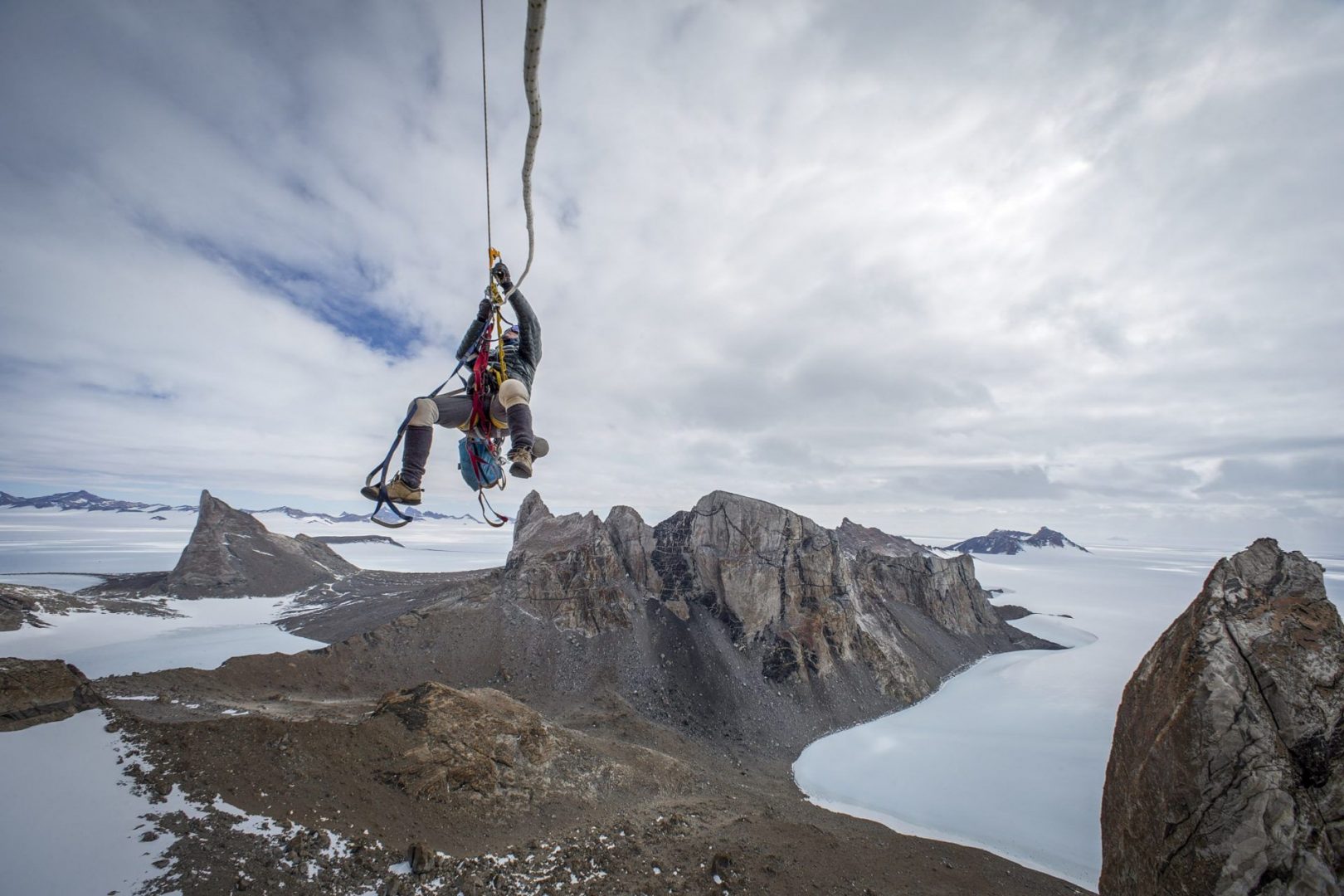
Is there a part of you that’s looking at everything that’s happening, the split between federal and state stuff, and is just fascinated by the politics of it all?
I’m fascinated by politics because ultimately politics are a creation of ourselves. They are a reflection of ourselves. They don’t actually exist, so to speak, they’re something that we create. We create politics, we create ideas around politics. We create ideologies. That’s the beauty of the human brain.
On that level, when you take a step back and you look at that, there’s a deep degree of creative fascination that surrounds what’s happening in the world right now. But ultimately, it’s our choice to choose how we show up in the world and what we believe in and what we fight for.
That I think is what’s more interesting to me; seeing the power and being inspired by the power of what people are choosing to show up for in the world that is beyond policy. Policy will be shaped by that. Beyond policy is what I find deeply moving.
Can you give us some clues in terms of what you’re training for?
Last year we went and we tried to do a new, previously unclimbed, unexplored route from the North side of Everest, to the top of the mountain. My friend, Esteban “Topo” Mana, he’s an Ecuadorian climber, young guy who’s really strong, climbing is our passion and it always has been.
For a long time, it was my job and it’s moved back into that passion realm. I’m one of the fortunate people on the planet who was able to pursue that kind of goal. We failed last year and we intend with everything to go back again and try harder and do it.
Right now, I’m immersed in a training cycle that is over a year long. I try actually not to think about Everest when I’m training, because if I do it almost makes it too long. It makes the process too long. I try to think about training as a day to day thing. I just do what my coach tells me, put a pin in the Everest thing, but that’s what we’re aiming towards.
I’m very lucky to have these brand relationships like I do. I think I’m one of the very, very fortunate few who’s able to actually work with brands that I believe in.
One of the things that’s echoed in what we’re trying to do is, and I’ve spoken about this before, is it is a reductionism, it’s an absolute refinement, and you have to be perfect in order to do it. You have to refine your body. You have to refine your mind. You have to refine your tactics, your approach.
It’s the same thing as designing something like, quite frankly, a Rolls-Royce, where you’ve designed it and you’ve thought about it and you say, ‘Well, that kind of works and it works pretty well, but not in any way how we need it to work for the final product.’ And in that way, I find my job or my passion, and that’s true photography as well, how do you include everything that you need to include, but not too much?
How do you create a perfect frame? How do you refine an idea, a view of the world that draws people in and gives them enough information, but still leaves them curious and wanting more? The same is true with climbing. How do you refine it far enough down? The same as true with, how do you design something that is not only functional, but inspiring?
That’s my big drive right now. I like to connect those two things, because I think oftentimes people are like, ‘Why are you speaking for this? How do you get into this position?’ And it’s because I genuinely am invested in this idea of craftsmanship and refinement.
At the moment, there are people out of this world of uncertainty who might’ve lost the career that defined them and they’ll have this new blank canvas. Have you got any advice for how you would set the goal and then lay out the blueprint for it?
You just said the key word, ‘blueprint’. It’s great to want a dream house, it’s great to want that thing, but unless you have a blueprint, there’s no roadmap to get there. The three things that happen there is, this is what I want; then there is, I’m going to get this; and then there is, how am I going to get there?
I try to view goals, like Everest, as, ‘This is the big goal. I know what that goal is, period.’ Now back way up, I’m going to do this; second decision made. Now, what’s everything that needs to happen between now and then? Start at the beginning.
For people whose lives may have been upended or upset by this, they have the opportunity to ask themselves, honestly, in this moment, what they’re passionate about and what they actually want to do to leave the world a better place than they found it?
Now is the time to ask yourself that big question, ‘What do I want to do? How do I want to impact the world? How do I want to show up? How do I want to offer myself in service to the rest of humanity? What does that look like to me?’
You don’t have to answer it at the dinner table. It doesn’t have to be right now, but sit with it, start thinking about it, meditate on it. When you find that answer, be bold in your pursuit of whatever it happens to be. Take a step back, ‘Am I going to do this?’ Make that decision, and then say, ‘What is the blueprint to get there? What do I need to do today to end up where I want to be in 20 years now?’
Oftentimes that’s a very hard thing to lay out, but again, I go back to making a list. It sounds so stupid, but the key to so much success in the world is making a list. Your list is your roadmap. Your list is your shot list when you’re on assignment and you go, ‘What story am I actually trying to tell?’
If you go out there and you don’t have a shot list, how do you know which pictures you’re trying to make? Make a list, it’s so simple. It’s so funny, I hate for the advice to be that pedestrian, but it’s so true. Just make a f**king list and you will get there. I don’t know how to say it other than that.
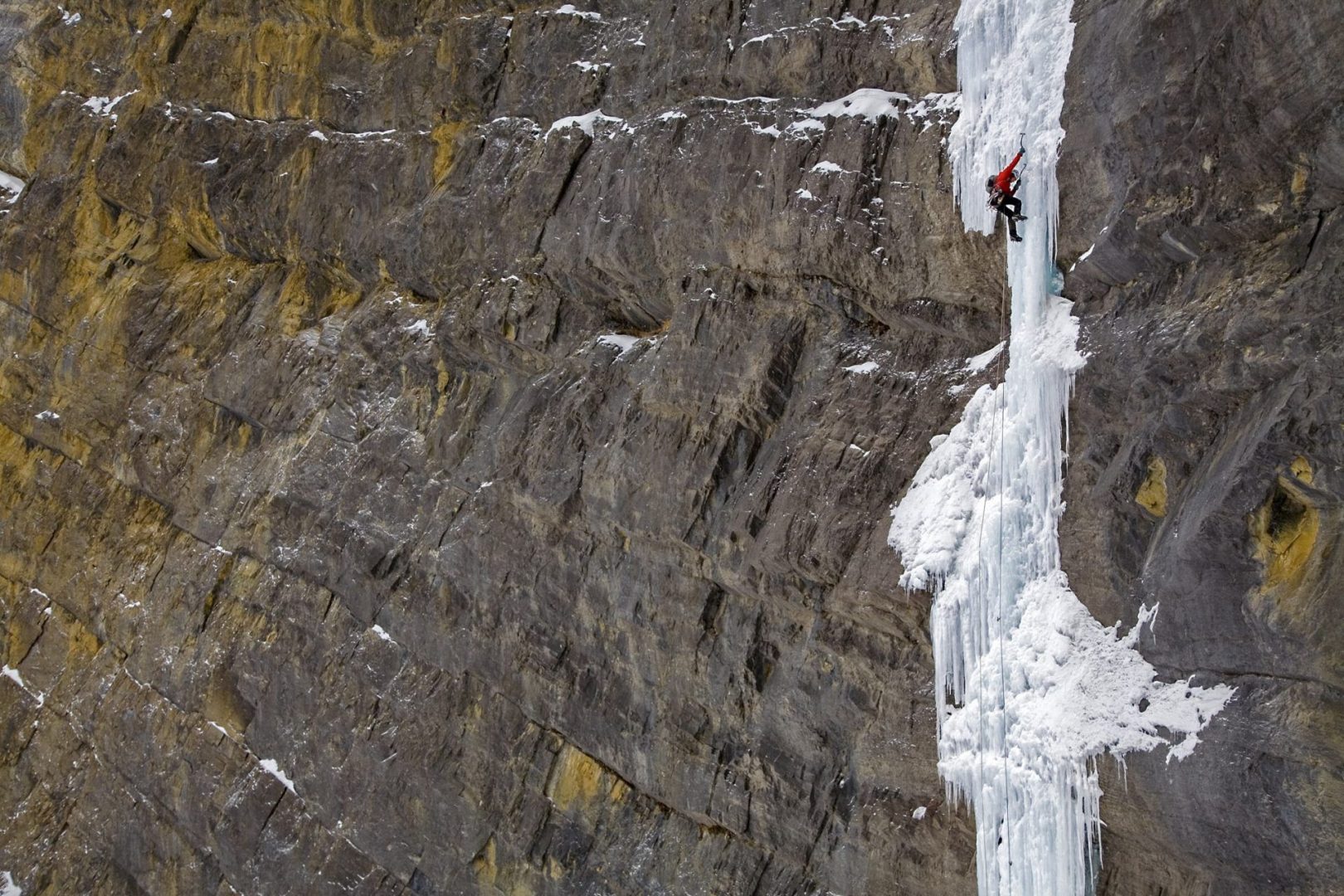
What’s your relationship with fear like? Have you got a superhuman thing going on with it?
Actually, I would say almost the exact opposite. I am very connected to fear. I am actually quite a fearful person. The difference is my relationship with fear is not prohibitive, it is introspective. So I feel fear, I find an inclination to move towards it and try and understand what’s actually scaring me and again, break it down.
So, I’m scared of this situation, how do I start to dissect it? What, in the grander situation, in the greater whole, what’s actually really bothering me? If you can identify what’s bothering you, there’s information to move towards. Why does that bother me? Can I alter my relationship with that component of this?
I am scared to death of the things that I try to do, specifically in the mountains, literally to death, I’m scared of dying. I’m scared of failing as an artist. I am scared of not fulfilling my greater purpose here and not having an impact that I want to have.
But rather than being paralysed by that fear, I try to move towards it and ask what’s actually scaring me. Being scared is natural and to say that you are fearless is a lie. You cannot functionally approach anything if you’re not being honest about what you’re approaching.
You might be able to get into it and overcome some of it, but unless you’re very clear about the fear you experience around uncertainty, you’ll never be able to overcome it.
I don’t have a superhuman relationship with it at all. I have a deeply human relationship with it, I just try to become more friendly with my fear, rather than trying to shrug it off with arrogance.
What advice would you have for being able to push through that fear of greatness? Whether it’s taking a leap into entrepreneurialism, or starting something new?
First and foremost, understand that being comfortable is what our brain strives for. When we arrive at comfort, getting outside of that is actually a tremendous effort. To willfully make ourselves uncomfortable or to step out of stasis is very, very difficult.
Don’t be too hard on yourself in the journey towards that, because when you’ve got a good thing going, why blow it? Just be comfortable with what you’ve got. I think there’s something to that.
At the same time, if you can accept what you have, be grateful for what you have and where you’re at in the world, but clearly define how you want to amplify or evolve.
In that moment, you will find discomfort because you will find a disconnect. You’ll say, ‘This is where I am, and this is where I want to be.’ It’s in that space in between where you go, ‘There’s so much more that I want to do, or I’m not accomplishing enough.’
Pay attention to that, that is your driver. That can act as your motivation. That discomfort is your jumping off point. What am I uncomfortable with right now?
When you can identify that, that’s the first thing on your list that you’re writing. ‘I am uncomfortable with this when I look between where I am and where I want to be and this thing scares me, so that is where I start on this journey.’
I think, again, it comes down to radical honesty and radical honesty is hard for people. What do you really, really want in life? What do you really want? Just get down to it. Just be honest with yourself. You don’t have to tell anybody, but just be honest, what do I really want? And then go for that thing.
My friend Chase Jarvis said something to this effect and I’m going to slaughter it, but where you want to be in life and what you want might be a million steps away from that ultimate goal, but it’s only one decision, that’s it. That to me is hopeful.
Identify what you want, be wildly honest with yourself and then make a decision to move forward.
Watch this interview here.

